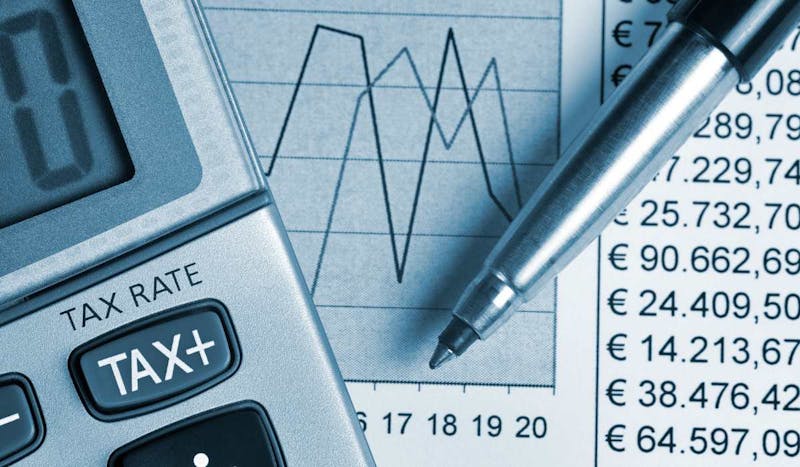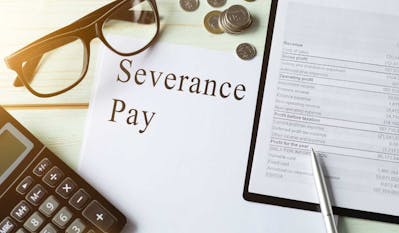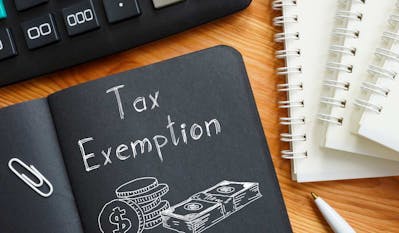Provisional tax involves making estimated tax payments throughout the year based on the previous year’s revenue.
It applicable to salaries tax (employment income) and profits tax (business net profits).
Eligible taxpayers can defer some or all provisional tax payments under certain conditions, aiding in managing cash flow during financial hardship or lower income expectations.
Holding over extends the time to pay existing tax liabilities, while tax relief reduces overall tax liability.
In this guide, we look at holding over provisional tax. The option of holding over provisional tax can offer relief during times of expected lower income or financial difficulty.
What is Provisional Tax?
In Hong Kong, provisional tax means you pay estimated taxes during the year based on last year’s income instead of paying the full amount when you file your tax return.
Having so helps the Inland Revenue Department (IRD) collect taxes gradually instead of waiting for a large payment when you file your final tax return.
Typically, provisional tax for individuals is split into two installments over the tax year (which runs from April 1 to March 31 of the next year):
- First Installment: Due around January (toward the middle of the tax year). This payment is usually 75% of your provisional tax for the year, after you have earned income for about 9 months.
- Second Installment: Due around April (end of the tax year), covering the remaining 25% of the provisional tax.
For example, if your provisional Salaries Tax for the year is assessed at HKD 20,000, the IRD might ask for HKD 15,000 in January and HKD 5,000 in April.
Also, the IRD will impose penalties on taxpayers who fail to pay or underpay their provisional tax. If you miss the first installment deadline, the second installment becomes immediately due, and a 5% surcharge may be imposed on the outstanding tax, among other recovery actions
Who Needs to Pay Provisional Tax?
Provisional tax applies to two main types of taxes in Hong Kong: salaries tax and profits tax.
- Salaries Tax: This tax is on income from employment in Hong Kong, including salaries, wages, bonuses, commissions, and other job-related income. It is subject to provisional salaries tax payments.
- Profits Tax: This tax is on the net profits of businesses operating in Hong Kong and based on their Hong Kong revenue. It applies to sole proprietorships, partnerships, and limited companies.
Holding Over Provisional Tax
“Holding over” provisional tax means deferring or reducing the provisional tax payment due for the current year, on the basis that your income for this year will likely be lower than the income on which the provisional tax was originally calculated.
The IRD allows eligible taxpayers to defer some or all of their provisional tax payments under certain conditions. This can help manage cash flow during financial hardship or if you expect your income to be much lower than the previous year.
For instance, if your business faces a temporary downturn, holding over provisional tax can offer financial relief. Similarly, if you anticipate a significant drop in your salary (for example, due to switching to a lower-paying job or taking an unpaid leave for a few months), you might qualify to defer part of your provisional Salaries Tax payment to better align with your actual lower income for the year.
Difference Between Tax Holdover and Tax Relief / Tax Reduction
It’s important to note that holding over provisional tax is not the same as getting a tax waiver or tax relief.
| Aspect | Tax Holdover (Provisional Tax) | Tax Relief / Tax Reduction |
|---|---|---|
| Purpose | To delay or defer payment of provisional tax | To reduce the total amount of tax payable |
| Effect on Tax Amount | Does not lower your final tax liability | Lowers your overall tax liability through deductions, rebates, etc. |
| Timing Benefit | Gives you more time to pay part or all of your provisional tax | Provides a permanent reduction in the amount of tax owed |
| Examples | Applying for a holdover due to lower projected income | Claiming Child Allowance, MPF deductions, or receiving a one-off tax rebate |
| Final Tax Impact | You still need to pay the correct tax after final assessment | You pay less tax than originally assessed |
Eligibility for Holding Over Provisional Tax in Hong Kong
Not everyone can defer their tax payments at will – you have to meet certain eligibility criteria for the IRD to approve a holdover of provisional tax.
If we take the example of salary tax, IRD allows taxpayers to defer some or all of their provisional tax payments related to their salary tax assessment.
This assessment refers to the calculation of your tax liability for salaries tax purposes, based on your total salaries income, which may include income from employment, pensions, or director's fees, in Hong Kong.
The main criterion is your projected net chargeable income for the current provisional tax year of assessment. This is your taxable income after deducting allowable expenses and claiming any applicable tax allowances.
The 90% Rule
Generally, you must expect your net chargeable income for the current year to be at least 10% lower than your net income from the preceding year.
For example, if your net chargeable income for the 2023/2024 year of assessment was HKD 100,000, your estimated net income for the current year (2024/2025) should be less than 90% of HKD 100,000 (HKD 90,000) to qualify for holding over.
Again, the IRD may also consider exceptional circumstances beyond the 90% rule, such as business downturns, changes in employment, or unexpected expenses that significantly impact your ability to pay.
How to Apply for Holding Over of Provisional Tax

If you believe you meet the eligibility criteria, you can apply for holding over provisional tax by contacting the IRD or submitting a formal application form along with supporting documents that substantiate your claim of lower income.
These documents might include financial statements, salary reduction notices, or medical bills.
Below are the complete steps, methods, and deadlines you need to know.
1. Choose Your Application Method
Holding Over Provisional Tax Application in Hong Kong
There are two ways to apply for holding over provisional tax in Hong Kong.
A. Paper Form (Form IR1121)
- Visit the IRD website and download Form IR1121.
- Fill in your personal or business details, current income estimate, and select the appropriate ground(s) for applying (see list below).
- Sign the form and submit it either by:
- Mail to:
Commissioner of Inland Revenue
P.O. Box 28487, Concorde Road Post Office, Kowloon, Hong Kong
- Fax to: (852) 2519 6896
- Important: Make sure your mail has sufficient postage—underpaid mail will not be accepted.
B. Online via eTAX
- If you have an electronic tax account with the IRD, you can apply through their eTAX system.
- Navigate to the section for holding over provisional tax and complete the online form.
- eTAX is available for taxpayers with income from employment, sole proprietorships, and sole-owned properties.
- Once submitted, you'll receive an instant acknowledgement.
2. Know the Deadline for Holdover Application
To be accepted, your application must be submitted on time. The IRD requires it no later than:
- 28 days before the due date for payment of provisional tax
OR
- 14 days after the issue date of the provisional tax demand notice,
Whichever is later.
For example, if your payment is due on Jan 15 and your notice was issued on Dec 1, then the deadline is Dec 18 (28 days before the due date).
If your provisional tax is split into two installments and the first has already been paid, you may still apply to hold over the second installment, as long as you meet the same conditions and deadlines.
3. Gather and Attach Supporting Documents
Your application must include proof to back your claim. These vary depending on your situation but may include:
- Draft business accounts (covering at least 8 months of the year)
- Salary reduction letters or pay slips
- Medical bills, termination letters, or proof of unemployment/retirement
- Details of newborn child or dependent parent (for new allowance claims)
- Proof of deductible expenses (MPF contributions, rent, insurance premiums, etc.)
Common Mistakes When Applying for Holding Over Provisional Tax in Hong Kong
Avoid these common errors to ensure your holdover application goes smoothly:
| Mistake | What You Need to Know |
|---|---|
| 1. Missing the Deadline | You must apply at least 28 days before the due date or within 14 days of receiving the tax notice — whichever is later. |
| 2. No Supporting Documents | Always include proof of income drop — like payslips, profit/loss statements, or other supporting documents. |
| 3. Small Income Drops | Your income must be at least 10% lower than the previous year. Small dips usually don’t qualify. |
| 4. Thinking It’s a Tax Reduction | Holding over doesn’t reduce tax owed — it only delays payment. You’ll still pay the full assessed amount later. |
| 5. Not Following Up | If you don’t get confirmation, check with IRD or log into your eTAX account to track your application. |
Final Words
Understanding how to hold over provisional tax can help you manage your finances in Hong Kong.
By delaying tax payments when your income is lower, you can improve cash flow and handle financial challenges more easily.
For expert accounting and tax advice, help with holding over provisional tax, or assistance with company registration, consider reaching out to Air Corporate.
FAQs
Hong Kong provisional tax is an advance payment of income tax based on your previous year’s earnings. It applies to salaries tax, profits tax, and property tax, helping the IRD collect estimated taxes before the final assessment.
Provisional income tax refers to tax payments made ahead of the final tax bill, calculated using last year’s income figures. In Hong Kong, this is known as provisional tax and is payable in two installments.
Anyone earning income sourced in Hong Kong—including employees, self-employed individuals, and businesses—is required to pay HK tax. This includes salaries tax, profits tax, and property tax depending on your income type.
The three direct taxes in Hong Kong are salaries tax, profits tax, and property tax. All are territorial, meaning they only apply to income derived from or earned in Hong Kong.







